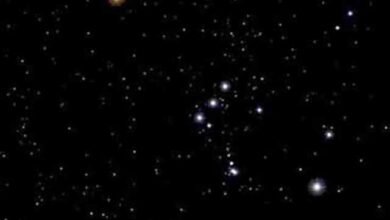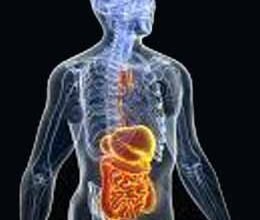
जीव विज्ञान से संबंधित-103.
| 1. Who used the word ‘Biology’ for the first time? = Lamarck and Trevirens.
2. Known as the father of biology? = Aristotle. 3. Who named the word hormone? = Bellis and Starling. 4. Where do microorganisms meet? = Sandy Soil, Salty water and in Marshy Land. 5. Where does the virus grow? = Living Cell. 6. Who discovered the bacterium first? = Leuvenhoek. 7. Who discovered the virus first? = Ivanovsky. 8. What is the simple shape of bacteria? = A Rod. 9. The bacteria which are the smallest in size are called? = Sphere. 10. What is the smallest animal? = Mycoplasma. 11. What is the shape of the lung? = Conical. 12. Which disease is related to respiratory system? = TB and Pneumonia. 13. What is the state of high blood pressure called? = Hypertension. 14. What is the main organ of respiration in humans? = Lung. 15. What is the blood pressure of a healthy human being? = 120/80. 16. What is the outermost membrane of the human brain? = Durameter. 17. Controls the ability of human being to smell? = Sensorimotor Lobe. 18. What is the center of intelligence and cleverness in man? = Cerebrum. 19. The amount of glucose in the blood controlled? = Insulin. 20. Which is the largest gland of the body? = Liver. 21. Voluntary movements in humans are controlled by? = Cerebrum. 22. Where is the body temperature controlled? = Hypothalamus. 23. Which enzyme is found in saliva? = Tilein. 24. The process by which a person inhales and exhales is called? = Breath. 25. Digestion of food is called which type of reaction? = Subsection. 26. The bacterium found in human intestine is? = Escherichia Coli. 27. Which disease is caused by bacteria? = Tuberculosis. 28. Which disease is caused by bacteria? = Cholera. 29. Which disease is caused by bacterial infection? = Leprosy. 30. Who developed the vaccine for smallpox? = Edward Jenner. =========== ========== ========== 1. ‘जीव-विज्ञान’ शब्द का प्रयोग सर्वप्रथम किसने किया? = लैमार्क तथा ट्रेविरेनस. 2. जीव-विज्ञान के जनक के नाम से जाने जाते हैं? = अरस्तू. 3. हॉर्मोन शब्द का नामकरण किसने किया था? = बेलिस एवं स्टारलिंग. 4. सूक्ष्मजीव मिलते हैं? = रेतली मिट्टी में, लवण युक्त पानी में और दलदल, भूमि में. 5. विषाणु कहाँ वृद्धि करता है? = जीवित कोशिका. 6. जीवाणु की खोज सर्वप्रथम किसने की? = ल्यूवेनहॉक. 7. सर्वप्रथम विषाणु की खोज किसने की? = इवानोवस्की. 8. जीवाणुओं की साधारण आकृति क्या होती है? = छड़ रूपी. 9. जो जीवाणु आकर में सबसे छोटे होते हैं उसे कहते हैं? = गोलाणु. 10. सबसे छोटा जीव होता है? = माइकोप्लाज्मा. 11. फेफड़ा का आकार होता है? = शंक्वाकार. 12. कौन-सी बीमारी श्वसनतंत्र से संबंधित है? = टी० बी और निमोनिया. 13. उच्च रक्त चाप की अवस्था को क्या कहते हैं? = हाइपरटेंशन. 14. मनुष्य में श्वसन का मुख्य अंग क्या है? = फेफड़ा. 15. एक स्वस्थ मनुष्य का रक्त चाप होता है? = 120/80. 16. मनुष्य के मस्तिष्क की सबसे बाहरी झिल्ली क्या है? = ड्यूरामीटर. 17. मनुष्य के सूंघने की क्षमता को नियंत्रित करता है? = ध्राणेंद्रिय पालि. 18. मनुष्य में बुद्धि एवं चतुराई का केंद्र होता है? = सेरीब्रम. 19. रक्त में ग्लूकोज की मात्रा नियंत्रित रहता है? = इंसुलिन. 20. शरीर की सबसे बड़ी ग्रंथि कौन है? = यकृत. 21. मनुष्य में ऐच्छिक गतियों का नियंत्रण किसके द्वारा होता है? = सेरीब्रम. 22. शरीर का तापक्रम कहाँ नियंत्रित होता है? = हाइपोथैलेमस. 23. कौन-सा एंजाइम लार में पाया जाता है? = टाइलिन. 24. वह प्रक्रिया जिसके द्वारा मनुष्य श्वास ग्रहण करता है तथा छोड़ता है उसे कहते है? = श्वासोच्छ् वास. 25. भोजन का पाचन किस प्रकार की अभिक्रिया को कहते हैं? = उपचयन. 26. मानव की आंत में पाया जाने वाला जीवाणु है? = एशररीशिया कोलाई. 27. कौन सा रोग बैक्टीरिया से होता है? = तपेदिक. 28. कौन सा रोग जीवाणु के कारण होता है? = हैजा. 29. कौन सा रोग जीवाणु संक्रमण के कारण होती है? = कुष्ठ. 30. चेचक के लिए टीके का विकास किसने किया था? = एडवर्ड जेनर.
|





